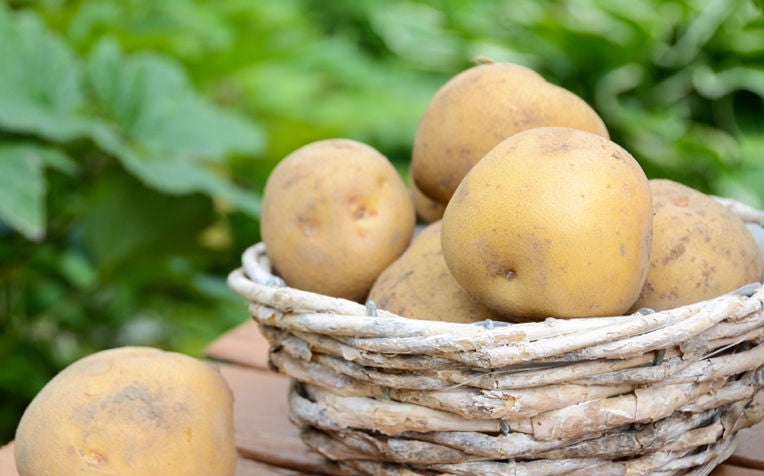HealthXchange will NEVER ask you to transfer money over a call. If in doubt, call the 24/7 ScamShield helpline at 1799, or visit the ScamShield website at www.scamshield.gov.sg.
Potatoes vs Rice: Which Remains Starchy After Cooking?

Potatoes and rice - which is better?
Potatoes and rice - which has higher glycaemic index and which remains starchy after cooking?
Like white rice, potato is a complex carbohydrate that is a staple food in many parts of the world. It is enjoyed in a large variety of dishes and is a good source of energy. Similar to most types of white rice, potato, in general, has a high glycemic index, which means it is quickly broken down into glucose, and can cause blood sugar and insulin levels to rise, making you feel hungry soon after. Potato is also associated with an increased risk of type 2 diabetes.
One difference between white rice and potatoes is that the starch in rice can be reduced by draining the water in which it is cooked, but potatoes remain starchy even after cooking. However, the practice of draining water from rice during the cooking process is not recommended as water soluble nutrients are drained and thrown out too.
“White rice and potatoes are popular starchy foods with similar nutritional values and a similar number of calories per serve,” says Ms Peggy Tan, Dietitian, Tiong Bahru Community Health Centre.
Nutrients in potatoes vs white rice
Nutrients found in white rice:
- Carbohydrates
- Protein
- Fibre – much less than potatoes
- B vitamins and vitamin E in very small quantities
- Calcium, manganese, magnesium, selenium, phosphorous, and iron in very small quantities
- Low calorie – 200 calories in a cup of cooked rice
Nutrients found in potatoes:
- Carbohydrates
- Protein
- Fibre – much more than rice, particularly if eaten with its skin
- B vitamins and vitamin C
- Magnesium, iron and potassium (high amounts, more than banana)
- Low calorie – 200 calories in four small boiled potatoes
Click on the next page to find out how they may contribute to diabetes and tips on how to cook potatoes and rice in a healthy way.
Article contributed by the Tiong Bahru Community Health Centre.
Tiong Bahru Community Health Centre (CHC) strives to bring about convenient health services to the community. It is helmed by a team of experienced nurses and allied healthcare professionals to support and complement GPs in their management of patients with chronic conditions.
Main services include Digital Diabetic Retinopathy Photography, Diabetic Foot Screening, Nurse Counselling and Education, as well as Dietetic Services.
Ref: Q15
Contributed by
Related Articles
Public Events
Get the Health Buddy App
© 2025 SingHealth Group. All Rights Reserved.

















 Get it on Google Play
Get it on Google Play